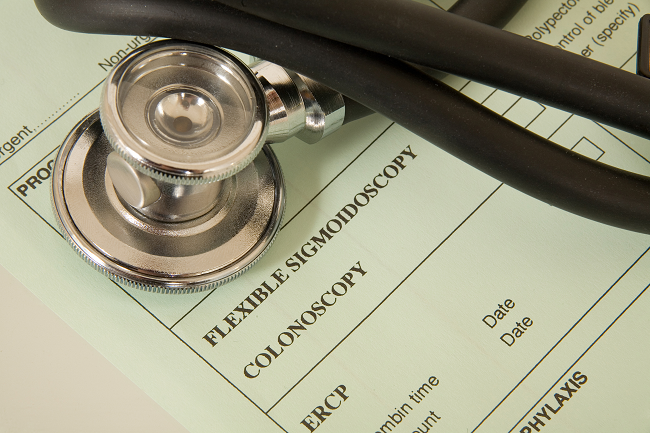Colon cancer results in over 55,000 deaths each year and is the second leading source of cancer deaths in the United States. In the early stages of the disease, a large number of people don’t show any signs or symptoms, so physicians are convinced that screening is vital for the early detection and treatment of colorectal (colon and/or rectal) cancer.
The types of screenings for colon cancer include testing of the stool for occult blood each year, a flexible sigmoidoscopy every five years, and/or a colonoscopy every 10 years. A colonoscopy is also used to follow-up on abnormalities detected by other screening tests.
The flexible sigmoidoscopy is a procedure used to see inside the last one-third of the colon (nearest the rectum), while a colonoscopy is an examination of your entire large intestine, or colon.
An important screening tool.
A colonoscopy is a key procedure that lets doctors check for a number of conditions. During the procedure, doctors may:
- Look for signs of colorectal cancer or monitor people with a history of colon polyps or cancer.
- Check inflammatory bowel disease.
- View ulcers, inflamed tissue, and abnormal growths.
- Look for the source of abdominal problems, such as pain, or for the cause of unexplained weight loss.
Screening usually begins at age 50 for people with an average risk for colon cancer. You may need more frequent or earlier screenings if you have:
- Family history of colorectal cancer.
- Certain rare genetic syndromes.
- Longstanding ulcerative colitis.
- Colonic Crohn’s disease.
- A personal history of large polyps or colorectal cancer.
Lifestyle issues can also lead a higher risk for colon cancer. These include being obese and sedentary; smoking; and eating a diet high in animal fat or low in fiber, fruits, and vegetables.
Symptoms and treatment.
Symptoms of colon cancer may include blood in the stool, narrowing of the stool, a change in bowel habits, unexplained anemia, frequent abdominal discomfort, or weight loss.
Treatment often involves surgery, chemotherapy, and/or radiation. With advancements in minimally invasive surgery, many colorectal surgeries are now laparoscopic procedures that use much smaller incisions and shorten recovery times.
Though deaths from colon cancer are far too common, more compliance with screening recommendations can lead to earlier detection and treatment.
See your doctor if you are experiencing any of the above symptoms. To make an appointment or find more information, call 423-778-2564 or visit www.erlangerhealth.org.







